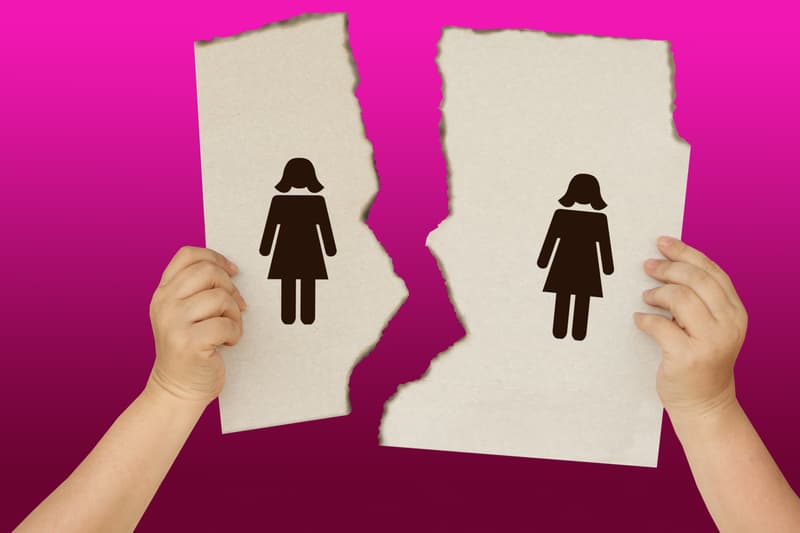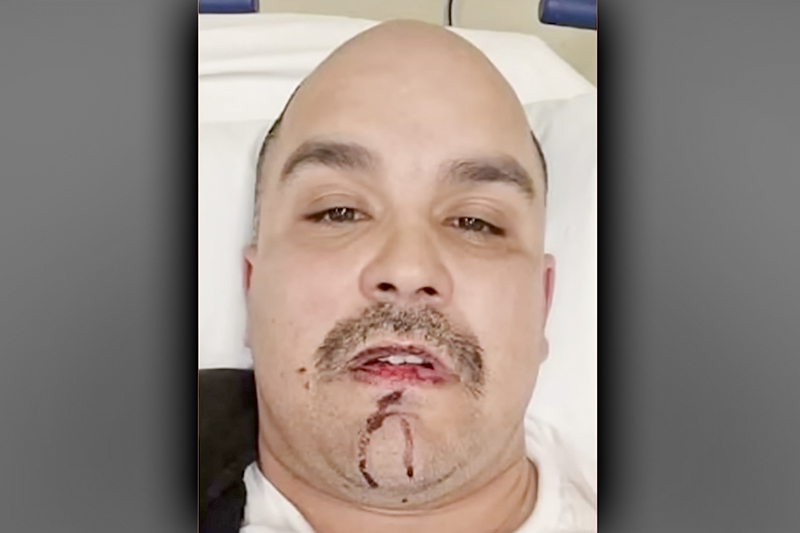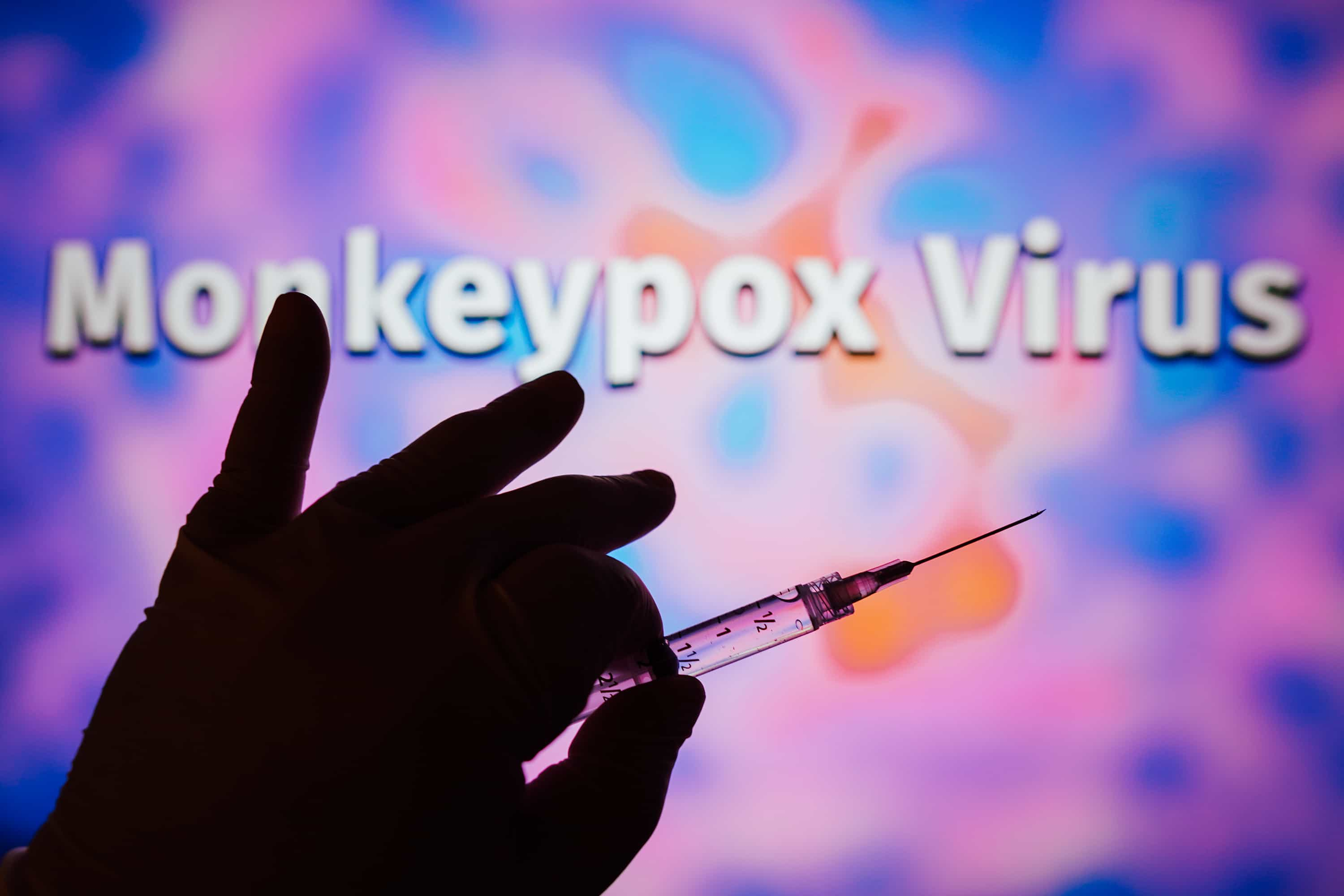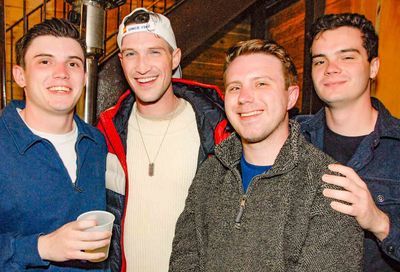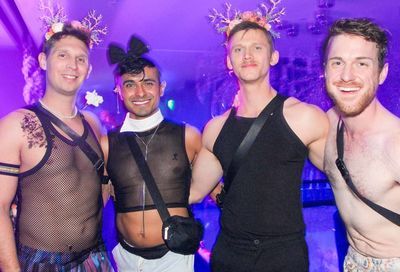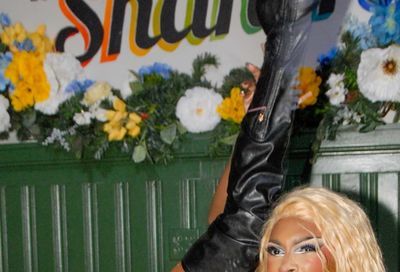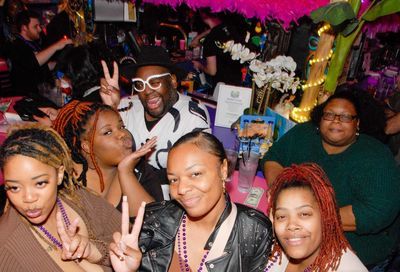Hostile Territory
The Fight for Gay Equality in Virginia
“Why did you move to the hate state?”
That’s what I’ve been asked, in various forms, since I left D.C.’s Adams Morgan/Columbia Heights neighborhood last October for the suburban environs of Northern Virginia. Never viewed as a bastion of gay rights and nearly always viewed with active disdain by long-time urban gays, myself included, the Old Dominion seemed the least likely of places for me to make my homestead.
The question came with more urgency following the November elections and the passage of multiple state constitutional amendments banning gay marriage in any shape, form or fashion. Somewhat predictably, the Virginia Legislature opened its 2005 session with a deluge of anti-gay amendments and bills. Admittedly, not what I would generally consider as my first choice in places to live. But there always has to be a reason. In fact, there’s more than one.
The short answer is, I did it for love. He wanted the suburbs and I wanted the city, like some post-modern gay version of Green Acres. So we met halfway and found ourselves in Falls Church, and now I’m a Virginian, complete with a driver’s license and voter registration. There are lots of things one will do for love, and in the grand scheme of things moving to Virginia seems less radical and painful than writing bad love poetry and getting tattooed.
 |
The long answer is, naturally, more involved. But in the interest of brevity and not inflicting more damage on the dead horse, the morning I got into my Jeep and found that someone had urinated all over the interior was the morning I decided I was moving out of town at the first opportunity. It was an emphatic last straw on a 15-year stack of hay.
But if you’ll allow me to mix some metaphors, I feel a little bit like I’ve gone from the frying pan and into the fire. Politically speaking, it seems that everywhere I turn I find myself living in hostile territory.
It’s Monday night, January 31, at the Metropolitan Community Church of Northern Virginia, and the early arrivers have already filled a significant number of the available seats. Equality Fairfax expects about 150 people to show up for a community meeting on the anti-gay legislative onslaught. By the time the meeting starts at 7 o’clock, a standing room only crowd of around 200 has spilled out of the sanctuary and into the lobby.
“[The turnout] shows how ready people are to take action,” says Equality Fairfax’s president, the exquisitely named Paula Prettyman. “It feels like we’re alone, but we’re not.”
Even with a room full of support, it’s easy to feel alone when faced with the kinds of laws that Virginia’s elected representatives are now proposing.
Here’s a sample of what’s been introduced in Richmond, the state capital.
Five amendments to the state constitution to ban gay marriage are in play, one in the Senate and four in the House of Delegates. The mildest defines marriage as only between a man and a woman. The strongest would ban civil unions or any other such “imitations” of marriage.
HB 1660 would create special license plates emblazoned with the words “Traditional Marriage” alongside a graphic of two interlocked wedding rings over a red heart. Prettyman says that resources will definitely be spent fighting this effort; court rulings have forced South Carolina to offer license plates with additional viewpoints to counter the state’s anti-abortion “Choose Life” plates. If the bill should pass, a similar outcome may play out in court.
HB 2868 would effectively ban gay-straight alliances from Virginia public schools.
HB 2921 would ban “homosexuals” from adopting children. It’s modeled after the Florida law banning adoption by gay couples that was recently left standing by the U.S. Supreme Court.
Then there’s HB 2490, a bill that’s intended to “fix” the infamous HB 751 that prohibited civil unions, partnership contracts and any other arrangement between people of the same sex to duplicate any benefit or right of marriage. Taken at face value, HB 751 strips gay couples of the right to enter into basic contracts, or use such common legal instruments as wills and powers of attorney. HB 2490 tries to retract some of it while leaving other parts in place, but by using vague terms such as “maintenance of personal health” it’s unclear what the effect would be.
 |
Even though HB 2490 on its face would seem a candidate for support from the gay community, Equality Virginia is opposing it. The sponsors of the original legislation have claimed they didn’t understand the repercussions the law would have, a contention that is openly scoffed by both audience members and Prettyman.
“If they wanted to write stronger legislation they would have done it,” she says.
Gay-positive bills that have failed include a repeal of HB 751 and a proposal to allow Fairfax County to include sexual orientation in its non-discrimination ordinance. There is a possibility that the state may repeal the sodomy law that has been rendered unconstitutional by the U.S. Supreme Court.
It’s not just the size of the crowd in the room that speaks to the concern and the urgency about what’s happening in Virginia. You can see the concern in their faces as well, along with an eagerness to do something to make these things right. But how optimistic can you be in a state that’s seriously considering making the license plate a daily slap in the face?
“These are very large odds we’re up against,” says Jay Fisette, chair of the Arlington County Board of Supervisors and a board member of Equality Virginia. Fisette is one of the few gay elected officials in the state, along with Alexandria’s gay representative in the House of Delegates, Adam Ebbin.
Fisette exhorts the crowd to make sure their voices are heard by coming out and telling their personal stories so legislators will understand the real impact of the legislation they are considering.
“To be gay or lesbian in 2005 is to be political. You’ve been made political.”
Also in the room are a handful of kids, a bittersweet sight when the participants are hearing in detail how the legislature plans to legally break up their families. It’s easy to succumb to a cynicism about gay nuclear families and how mainstreaming gays leaves others behind. In a political culture that too often uses children as political cover for governmental overreaching — hello, Michael Powell — it’s easy to assume that all such concerns are constructed. But it’s hard to look a kid with gay parents in the eye and not feel anger at what’s being done by governments, politicians and right-wing religious zealots.
Because when it gets scary is when you think about what you have to lose.
I moved to D.C. in 1989, a Kentucky native fresh out of college with no family to speak of in the area. Over the years I grew so distant from my sense of family that I didn’t even realize that I missed it. I fulfilled my family desires through my friendships, but I’ve come to see that it isn’t really the same thing, as dear as some friendships may be.
Friendship is its own thing, family is another — building a family is a far different task than building a network of friends. Family you make, and you want to make them well, because once you have them they’re yours. No one can take them away from you, and you can’t really get rid of them. As a lot of us know from our own parents, even divorce is just another phase in an ongoing relationship.
But where I have no family ties in the area, my partner has many. I suddenly have the equivalent of in-laws living nearby. We stop by their home, they stop by ours. Other family comes to visit from out of town. For a country-raised kid who lived about two cornfields away from grandparents, uncles, aunts and cousins, the sudden presence of an extended family has a familiar, comforting feel.
But in all honesty, that feeling isn’t completely real. At least not yet. So many of our society’s family ties are bound up in marriage and, for many, children. With all the victories and setbacks of recent years, I have truly held the belief that I would be able to get married within my lifetime. Or even better, early enough in my life that I would have plenty of time to enjoy it. It’s that belief, that hope, that’s under fire right now.
What I have to lose is potential. If Virginia amends its constitution to ban gay marriage it could be a generation before it’s changed. This is the state where even the repeal of an unconstitutional sodomy law is a political struggle. Hell, it took them decades to do away with the law that prohibited bars from serving liquor to known homosexuals (a law that should be a reminder to many just how crazy things were in the past, and how quickly they can get crazy again).
What I have to lose is the potential to adopt. Even if my partner and I decide not to take that road, I want us to make that decision ourselves, not have it made for us.
What I have to lose is the potential to share the life that I make with the person that I love, and to be able to take care of him should something befall him.
What is life in the U.S. if not one of potential? Potential is the story of our American lives, the idea that we can be whoever we want to be, that we can overcome even the lowliest of upbringings to achieve the pinnacles of success. When the state takes away the potential in your life, it’s taking part of life itself.
For all the frustrations and problems that contributed to my leaving, I still love the District. It’s a haven for gays and lesbians that allowed me to grow into a person I never expected to be back when I was growing up and dreaming — albeit a haven always under threat from the congressional overlords. But my moving out of Virginia isn’t a solution, either for me or for anyone else who lives there.
Change has to start somewhere. Equality for gays and lesbians never came along because everyone moved to a better place; it happened because they demanded it and worked for it. On Monday night a lot of people were ready to be demanding and work even harder than before.
Besides, with just four months in Virginia, in many ways I’ve already grown attached. I want to follow the potential of my own life in this new area with the man that I love. I want to see my friends who have started their own families be able to enjoy their lives together without having the rug pulled from beneath them by a rabid legislature. I want to see gays and lesbians in Virginia succeed because a victory here has implications in D.C. and beyond.
Because it’s not all about me. It’s about all of us.
For more information about anti-gay legislation in Virginia and the efforts to defeat it, visit Equality Virginia at www.equalityvirginia.org and Equality Fairfax at www.equalityfairfax.org. For information on specific bills being considered by the Virginia state legislature go to http://legis.state.va.us/.
Support Metro Weekly’s Journalism
These are challenging times for news organizations. And yet it’s crucial we stay active and provide vital resources and information to both our local readers and the world. So won’t you please take a moment and consider supporting Metro Weekly with a membership? For as little as $5 a month, you can help ensure Metro Weekly magazine and MetroWeekly.com remain free, viable resources as we provide the best, most diverse, culturally-resonant LGBTQ coverage in both the D.C. region and around the world. Memberships come with exclusive perks and discounts, your own personal digital delivery of each week’s magazine (and an archive), access to our Member's Lounge when it launches this fall, and exclusive members-only items like Metro Weekly Membership Mugs and Tote Bags! Check out all our membership levels here and please join us today!




